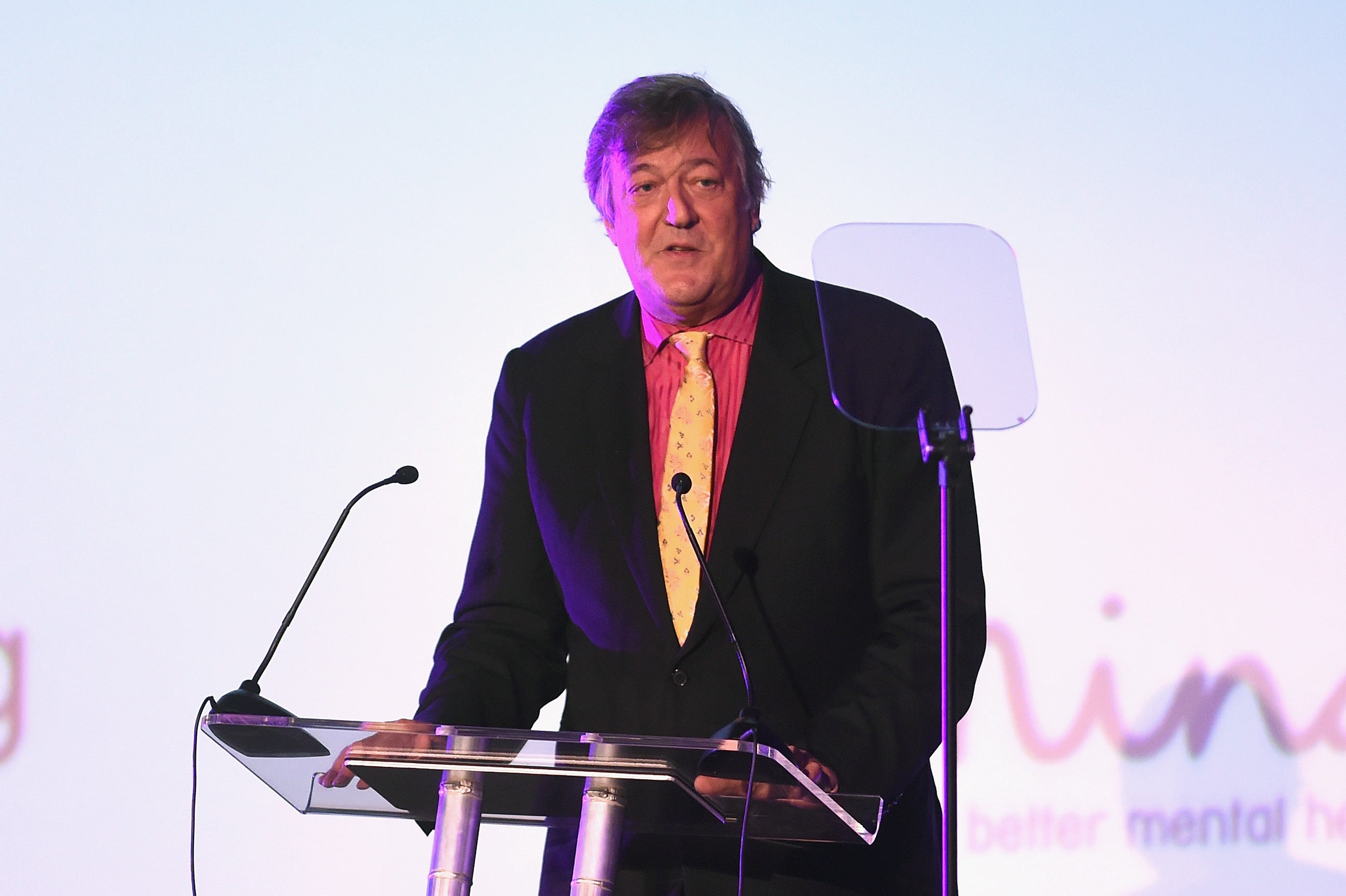Stephen Fry voices Mind charity appeal for mental health walk-ins for children
The pandemic has seen a rise in young people contacting mental health services

Actor and comedian Stephen Fry is calling for a network of mental health walk-in centres for young people and children in the wake of the coronavirus pandemic.
Mr Fry, who is currently the president of the mental health charity Mind, wrote in The Daily Telegraph in a bid to draw attention to the charity’s appeal to ministers for walk-in hubs where children can access support.
Walk-ins would mean that children and young people could access support without needing to first be referred by a doctor or their school.
Mr Fry, 61, said that hubs such as these would mean that people aged 11 to 25 would be able to access help more easily before going on to reflect on his own youth, which he called a time of “confused despair.”
Writing in the Telegraph, he said: “I’ve done my best to speak candidly about my own struggles with mental health – living with bipolar and navigating my way through several dark and troubling times, including a near-fatal overdose.”
He added that although he had noticed a reduction in the stigma attached to mental health, the pandemic has taken “a huge toll” on people.
A survey conducted by Mind of almost 12,000 people, including 1,756 young people aged 13-24, found that more than two thirds (68%) of young people with mental health problems said that their mental health had grown worse since the first national lockdown in March 2020.
Meanwhile, over one in six (18%) young people said that they had experienced mental distress for the first time during the pandemic.
Mr Fry suggested that Mind’s research has shown that the mental health of young people has been “among the hardest hit” by the pandemic.
He added that children are not getting enough support from schools since mental health issues are sometimes treated as “bad behaviour”.
“Better to accept our own moral responsibilities to the young and strive to understand and ameliorate this crisis,” he said. “For crisis it is.”
According to the Mental Health Network, which is part of the NHS Confederation, in February 2021 there were 305,802 children and young people in contact with mental health services in England. This is compared to 237,088 in March 2020.
If you are experiencing feelings of distress and isolation, or are struggling to cope, The Samaritans offers support; you can speak to someone for free over the phone, in confidence, on 116 123 (UK and ROI), email jo@samaritans.org, or visit the Samaritans website to find details of your nearest branch.
If you are based in the USA, and you or someone you know needs mental health assistance right now, call National Suicide Prevention Helpline on 1-800-273-TALK (8255). The Helpline is a free, confidential crisis hotline that is available to everyone 24 hours a day, seven days a week.
Join our commenting forum
Join thought-provoking conversations, follow other Independent readers and see their replies
Comments
Bookmark popover
Removed from bookmarks